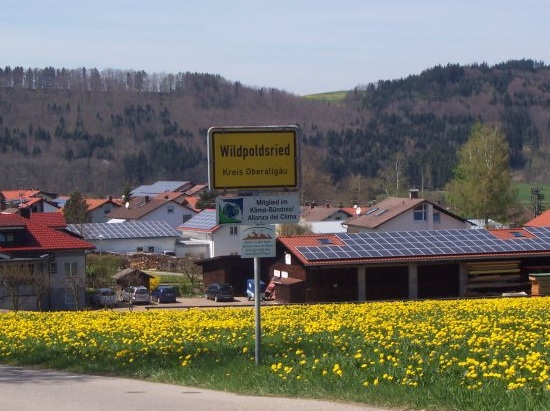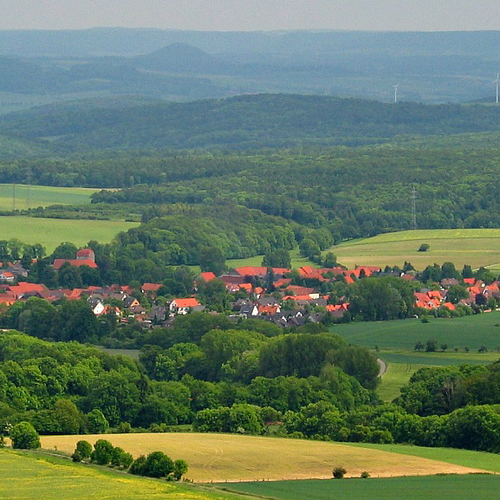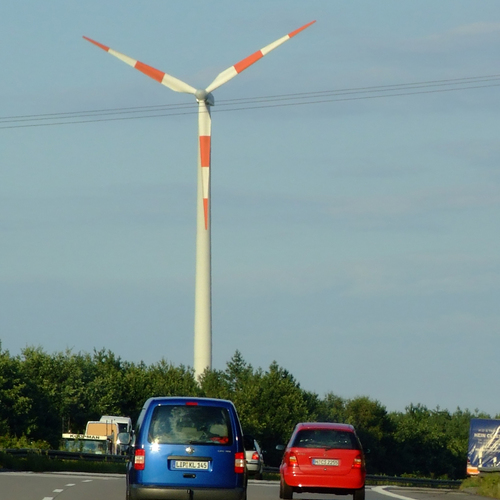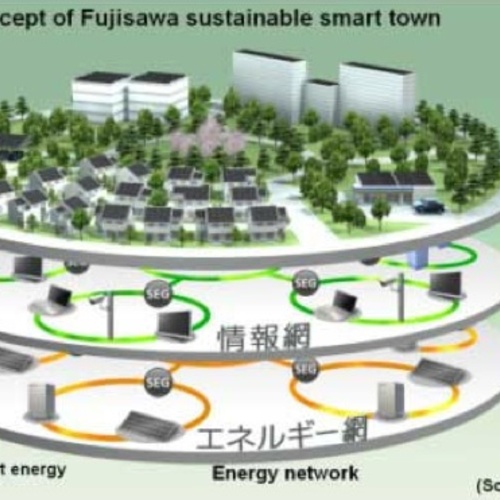Image Credit: Wildpoldsried (all images)
Image Credit: Wildpoldsried (all images) Investors in Wildpoldsried also installed wind-powered generation plants, including a two-plant project called Enercon E-58, which has been in operation since April 2000. This wind-power plant, SW 77, has been in operation in Wildpoldsried since March 2002.
Sometimes it really does take a village. In 1997, the residents of Wildpoldsried, a Bavarian farming community of about 2,600 people, identified goals for revenue generation, local business development, and infrastructure. The idea was to proceed carefully, avoid massive debt, and let the rewards accumulate gradually over the coming decades. By May 2011, the town was not only on its way to realizing all its goals, it had generated about $5.7 million in revenue.
The not-so-secret formula for this transformation turns out to be a blend of economic caretaking, government incentives, and renewable-energy adoption and other ecological practices. Nine new public buildings and many homes in Wildpoldsried are equipped with photovoltaic systems. The town operates three small hydroelectric plants, and five of its community buildings are equipped with biogas digesters.
Several wind turbines are, in various combinations, supplying power to the community. The town has also installed flood-control and natural-wetlands wastewater systems, and this year its village council adopted an ordinance that offers a rebate of $20.70 per square meter (about $1.92/sq. ft.) on the cost of land to the owners of homes built to the Passivhaus standard.
A showcase community
A story published in August by BioCycle magazine details the energy and ecology projects that, cumulatively, have helped produce Wildpoldsried’s net annual power surplus, which has topped 320%.
A feed-in tariff introduced in 2000 helped make investment in photovoltaic systems economically feasible, and the community took to PV, as well as to wind power, in a big way. One of the challenges now, in fact, is to manage the resulting surplus so it doesn’t overload the grid and force the regional power company into an expensive expansion. Accordingly, the village is contemplating research that would explore using the excess electricity to power a biogas generator that would produce a storable form of energy – methane.
“We have already run into problems where we are producing too much renewable energy. It’s very important to make the network intelligent and combine it with a storage system,” village council member Günter Mögele told BioCycle. “The stored methane will then be saved and converted back to power at a later time.”
Wildpoldsried’s success as a low-carbon community has landed it on a short list of towns eligible to participate in government-sponsored sustainability initiatives such as Project IRENE (Integration of Renewable Energy and Electric Vehicles), a two-year smart-grid study launched this fall under the guidance of two universities and the regional power company. One aim of the project is to explore techniques for monitoring and managing the power supply when electric vehicles are in widespread everyday use.
Wildpoldsried’s star turn as an eco-village happens to coincide with the European Union’s adoption of its “20-20-20” initiative, which calls for 20% reductions in greenhouse gas emissions, use of renewable-energy sources to provide 20% of total energy use, and 20% cuts in overall energy consumption. According to clean-energy market specialist Pike Research, compliance with the measure will prompt the amount of certified green building space to almost quadruple by 2016.
Weekly Newsletter
Get building science and energy efficiency advice, plus special offers, in your inbox.














2 Comments
Nice work Wildpoldsried
This is fantastic. Congratulations to Germany for showing leadership as well as environmental and economic responsibility. In these uncertain times having a degree of energy independence is a great asset.
- Fred Greenhalgh -
ReVision Energy, Portland, ME
Wildpoldsried for all
This is something that many have envisioned as a form of modern Utopia. The implications go beyond just energy and environmental issues. Independence of huge infrastructure and large scale thinking will help level the playing field for all with its socio-economic benefits as a pleasant side-effect. Self-sustenance and sustainability for all ! This is very encouraging and inspiring stuff that these folks ( volks? ) have accomplished. Congratulations to you all.
Byron Zorzos
Board Member CommonPlace Eco-Village
CANADA
Log in or create an account to post a comment.
Sign up Log in